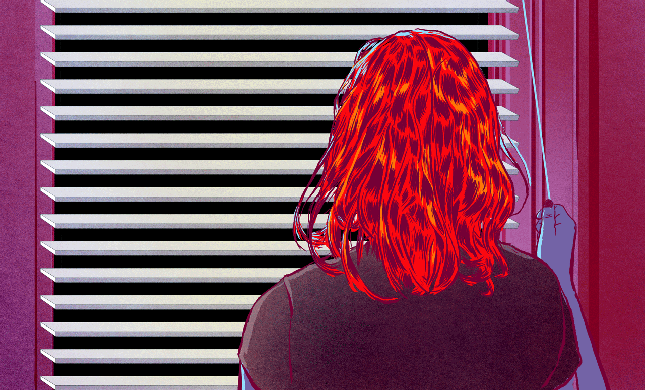How to Flake Out on Plans If You're Depressed
Latest

When I was growing up, there was nothing better than when school was canceled for a snow day. It didn’t just mean no school; it was bigger than that. Snow was the universe’s way of saying, “Shhh, no more human activities, no cars, hush now, earth, settle down.” Snow just kindly smothers the world at large, isolating everyone.
Even newscasters—those relentlessly cheerful and competent morning people—encourage you to stay indoors. No one thinks you’re weird for doing so. A snow day for the depressed person is like Halloween for the vampire: she can hide in plain sight.
Deep down, everyone just wants a snow day. When you suddenly cancel on friends, you are doing them a favor. You are in effect giving them a snow day, even if they didn’t realize they wanted one.
When I’m depressed, I find it impossible to attend most social events. It’s not the being there I fear—there’s usually booze and dim lighting. It’s the getting there that kills me. I’ll lie around and think about everything I need to do to get from my bed, now, at four p.m., to such-and-such event at six p.m. I’ll picture trying to stand. I’ll think about how I’ll wear this week’s favorite tee, even though it tugs across the love handles. I make peace with love handles, because they are American. Then I remember the tee has an undeniably hued barbecue sauce stain up near the neck, evidence of the cause of the love handles below. Maybe I could wear it anyway but crack a joke about it at the beginning of every conversation I have tonight.
I’ll start thinking that if I want to make it on time, I better get a move on. And that’s where it falls apart. There’s something about “getting a move on” that I find utterly repellant.
I have disappointed people on many occasions. And you can, too.
Are you worried about disappointing people? Are you panicking because right now you should be getting ready for your friend’s baby shower/clothes swap/Super Bowl party?
Let me put you at ease. Only a few people there will truly miss your presence, and depending on how erratically you’ve been behaving recently, they might be concerned you would only show up and be a downer anyway.
And if those people don’t understand that “showing up” isn’t securely in your wheelhouse, then you are bound to run into problems with them anyway. You need to acclimate these friends to your ways.
-

-

-

-

-

-

-

-

-

-

-

-

-

-

-

-

-

-

-

-

-

-

-

-

-

-

-

-

-

-

-

-

-

-

-

-

-

-

-

-









































